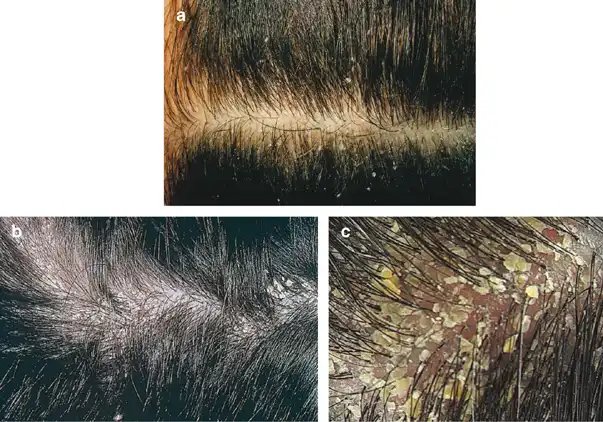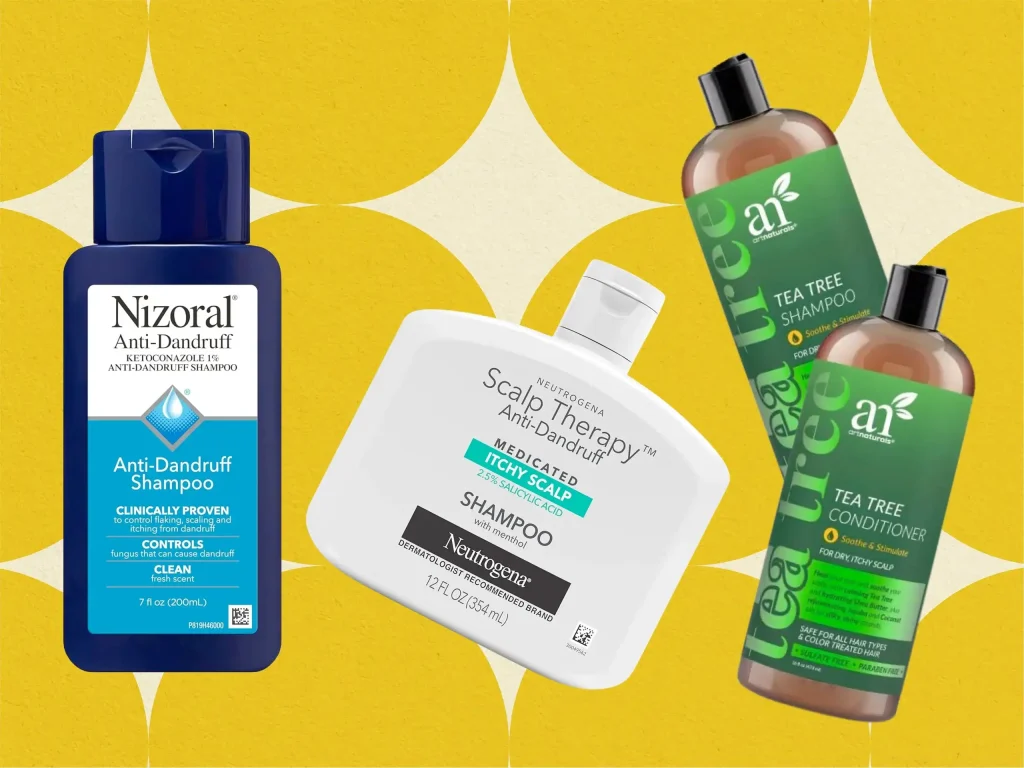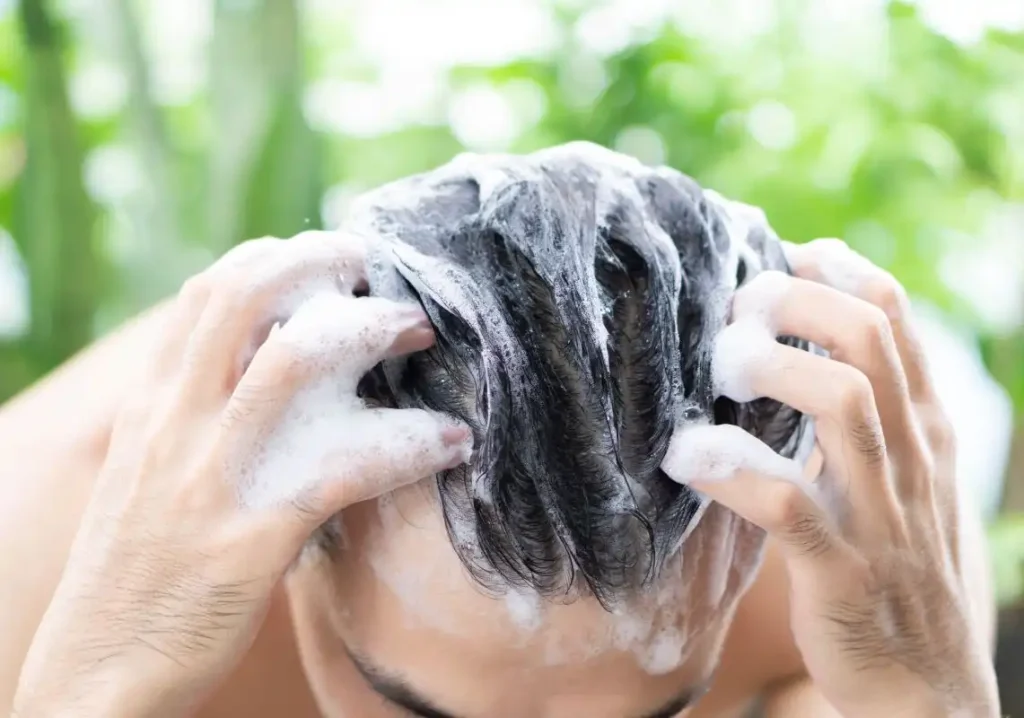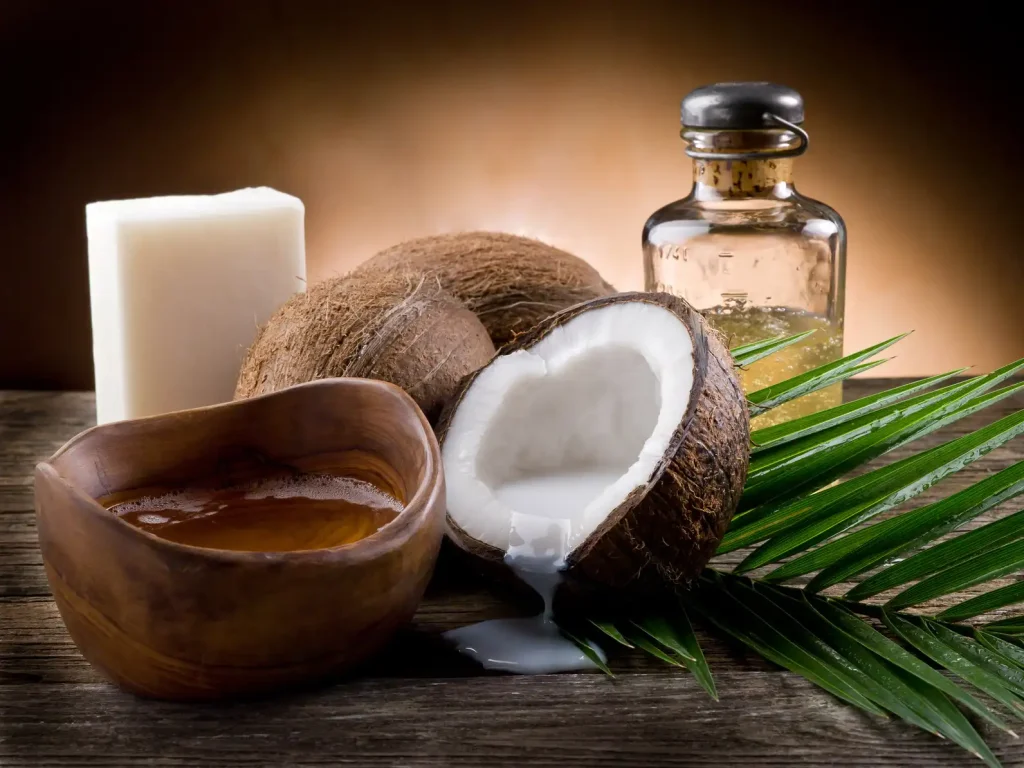Dandruff is something many people experience, and it often causes frustration, especially when those white flakes fall onto your shoulders. If you’ve ever wondered why it happens or how to get rid of it, you’re not alone! In this blog, we’ll explore what causes dandruff and how you can take care of it. Let’s break it down in an easy-to-understand way, perfect for kids aged 10 to 14!

What is Dandruff?
Before we discuss the causes, let’s first understand what dandruff is. Dandruff is the name for small, white or yellowish flakes that appear on the scalp and sometimes fall onto hair or clothes. It can be annoying, and many people deal with it occasionally.

The flakes are actually dead skin cells that are shedding from your scalp. Everyone’s skin sheds old cells, but people with dandruff shed them more quickly than usual. This can happen for various reasons, which we’ll explore in the next section.
What Causes Dandruff?
There isn’t just one cause of dandruff—there are several factors that can make it happen. Let’s look at the main reasons why you might have dandruff.
1. Dry Skin
One of the most common causes of dandruff is dry skin. During the colder months, or in dry environments, your skin can become dry and flaky, including the skin on your scalp. When this happens, you might see white flakes falling off your scalp. If you have dry skin on other parts of your body, like your face or arms, you’re more likely to get dandruff too.

How to fix it: Use a moisturising shampoo or conditioner to help keep your scalp hydrated. Avoid hot showers, as they can make your skin even drier.

2. Seborrheic Dermatitis
Another cause of dandruff is seborrheic dermatitis, a skin condition that causes oily, red, and flaky skin. It can occur on the scalp but can also affect other areas of the body, such as the eyebrows or sides of the nose. Seborrheic dermatitis occurs when the skin produces too much oil, which can lead to irritation and flaking.

How to fix it: Special anti-dandruff shampoos containing ingredients like zinc pyrithione or ketoconazole can help treat seborrheic dermatitis. You can ask your doctor for advice on which shampoo is best for you.

3. Malassezia Fungus
Malassezia is a type of fungus that naturally lives on the skin and scalp. For most people, it doesn’t cause any problems, but in some cases, it can grow out of control. This can cause irritation and lead to dandruff. The fungus feeds on the oils produced by the scalp, which can cause the skin cells on the scalp to grow faster than normal, causing them to die and shed.

How to fix it: Antifungal shampoos are the best solution for dandruff caused by Malassezia. These shampoos contain ingredients like ketoconazole, which can help control the fungus.

4. Not Shampooing Enough
If you don’t wash your hair regularly, the oils from your scalp and dead skin cells can build up, which can cause dandruff. This is because the oils mix with the dead skin cells and form the flakes you see. It’s important to wash your hair regularly to keep your scalp clean and healthy.

How to fix it: Depending on your hair type, try washing your hair every two to three days. This helps keep your scalp clean without stripping it of natural oils.

5. Sensitive Skin or Allergies
Sometimes, dandruff can be triggered by an allergic reaction to certain hair products, such as shampoos, conditioners, or hair gels. If your skin is sensitive to these products, it may become irritated, causing flaking and itching. The ingredients in hair care products can sometimes cause skin irritation, especially if they contain harsh chemicals.

How to fix it: If you think a product is causing your dandruff, try switching to one free from harsh chemicals. Look for gentle, hypoallergenic shampoos designed for sensitive skin.

6. Stress
Believe it or not, stress can also play a role in dandruff. When you’re stressed, your body produces more oils, and this can affect your scalp as well. The oils can mix with dead skin cells, causing the flakes to appear. Stress can also make other scalp issues, like seborrheic dermatitis, worse, which can lead to more dandruff.

How to fix it: Managing stress is important for your scalp and overall health. To reduce stress, make sure you get plenty of sleep, exercise, and try relaxing activities like reading, drawing, or spending time with friends.

How to Treat Dandruff
If you’re dealing with dandruff, don’t worry! There are plenty of ways to treat it and get your scalp feeling better. Here are some treatments you can try:
Shampoos for Dandruff
The best way to treat dandruff is by using a special anti-dandruff shampoo. These shampoos contain ingredients that fight the causes of dandruff, like dryness, oiliness, and fungus. Some of the most common ingredients in anti-dandruff shampoos include:

- Zinc Pyrithione: Helps control the growth of yeast on your scalp.

- Ketoconazole: An antifungal that can help get rid of Malassezia fungus.

- Coal Tar: Slows down the rate at which skin cells die and shed.

- Salicylic Acid: Helps remove dead skin cells and flakes from your scalp.

You may need to try several different shampoos to find the one that works best for you. For the best results, follow the instructions on the bottle!
Natural Treatments
Some people prefer to use natural remedies to treat dandruff. Here are a few things you can try:
- Coconut Oil: Known for its moisturising properties, coconut oil can help reduce dryness and flakes.

- Aloe Vera: Aloe vera gel has soothing and cooling properties that can calm an irritated scalp.

- Apple Cider Vinegar: The acidity in apple cider vinegar can help balance the pH of your scalp and fight yeast.

Always remember to do a patch test first before using any natural product to make sure you’re not allergic to it!
Visit a Doctor
If your dandruff is severe or doesn’t go away with over-the-counter shampoos, see a doctor or dermatologist. They can check for underlying conditions like seborrheic dermatitis or eczema and recommend stronger treatments if necessary.

Can Dandruff Be Prevented?
While you may not be able to completely prevent dandruff, there are a few things you can do to reduce your chances of getting it:
- Wash your hair regularly to keep your scalp clean.
- Use a mild, moisturising shampoo if you have dry skin.
- Avoid stress by taking breaks, relaxing, and getting enough sleep.
- Use gentle hair care products that are free from harsh chemicals.

By caring for your scalp and using the right products, you can reduce the risk of dandruff and keep your hair looking great!
Conclusion
Dandruff is a common issue, but it’s nothing to be embarrassed about. Whether it’s caused by dry skin, a fungus, or even stress, there are plenty of ways to treat and manage it. The key is to find what works best for your scalp and to take good care of your hair. If you keep your scalp clean and moisturised, use the right products, and manage any underlying conditions, you’ll be well on your way to saying goodbye to dandruff!
For more interesting articles, please visit www.kidzherald.com





